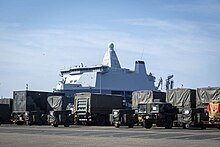
The Netherlands Antilles was a constituent country of the Kingdom of the Netherlands. The country consisted of several island territories located in the Caribbean Sea. The islands were also informally known as the Dutch Antilles. The country came into being in 1954 as the autonomous successor of the Dutch colony of Curaçao and Dependencies. The Antilles were dissolved in 2010. The Dutch colony of Surinam, although relatively close by on the continent of South America, did not become part of the Netherlands Antilles but became a separate autonomous country in 1954. All the island territories that belonged to the Netherlands Antilles remain part of the kingdom today, although the legal status of each differs. As a group they are still commonly called the Dutch Caribbean, regardless of their legal status. People from this former territory continue to be called Antilleans in the Netherlands.
Same-sex marriage is legal in Aruba and Curaçao, which are constituent countries of the Kingdom of the Netherlands. The islands are obliged to conduct same-sex marriages following a ruling from the Supreme Court of the Netherlands on 12 July 2024. In September 2021, a lower court in Curaçao ruled that preventing same-sex couples from marrying violates the equality provisions of the Constitution of Curaçao, but left the decision of whether to legalise same-sex marriage up to the Parliament of Curaçao. In December 2022, the Joint Court of Justice of Aruba, Curaçao, Sint Maarten, and of Bonaire, Sint Eustatius and Saba ruled on appeal that Aruba's and Curaçao's same-sex marriage bans were unconstitutional. The court order was set to go into effect on 7 March 2023 if not appealed to the Supreme Court; however, the governments of both Curaçao and Aruba subsequently appealed. On 12 July 2024, the Supreme Court upheld the lower court ruling, effectively legalizing same-sex marriage in Aruba and Curaçao with immediate effect.

The Kingdom of the Netherlands, commonly known simply as the Netherlands, is a sovereign state consisting of a collection of constituent territories united under the monarch of the Netherlands, who functions as head of state. The realm is not a federation; it is a unitary monarchy with its largest subdivision, the eponymous Netherlands, predominantly located in Northwestern Europe and with several smaller island territories located in the Caribbean.

The Dutch Caribbean Coast Guard (DCCG) is the coast guard of the Kingdom of the Netherlands in the Dutch Caribbean. The unit is a joint effort between all constituent countries within the Kingdom. Prior to the dissolution of the Netherlands Antilles, it was known as the Netherlands Antilles and Aruba Coast Guard and was a division of the Royal Netherlands Navy.

The Caribbean Netherlands is a geographic region of the Netherlands located outside of Europe, in the Caribbean, consisting of three special municipalities. These are the islands of Bonaire, Sint Eustatius and Saba, as they are also known in legislation, or the BES islands for short. The islands are officially classified as public bodies in the Netherlands and as overseas territories of the European Union; as such, European Union law does not automatically apply to them.

The emblem of Curaçao is a yet to be adopted national symbol of Curaçao. The design will be based on a concept by Andresetti Monart featuring the Queen Emma Bridge, a cactus, a hummingbird and a traditional fishing boat, which was chosen through a design competition held in 2022. The emblem is set to replace the coat of arms of Curaçao, which has been in use since 24 July 1964.

The Dutch Caribbean are the New World territories, colonies, and countries of the Dutch Empire and the Kingdom of the Netherlands located in the Caribbean Sea, mainly the northern and southwestern regions of the Lesser Antilles archipelago.

George Ranjit Mohamed Jamaloodin was Curaçao's first Minister of Finance after Curaçao obtained the status of country upon the dissolution of the Netherlands Antilles on 10 October 2010. In the 2010 general election leading up to obtaining the status of country he was placed third on list of Movement for the Future of Curaçao (MFK), led by Gerrit Schotte, who became Curaçao's first prime minister. He was initially sentenced to 28 years for fraud and "provoking" murder. On appeal, the sentenced was increased to 30 years.

Lesbian, gay, bisexual, and transgender (LGBT) people in Curaçao have similar rights to non-LGBT people. Both male and female same-sex sexual activity are legal in Curaçao. Discrimination on the basis of "heterosexual or homosexual orientation" is outlawed by the Curaçao Criminal Code.
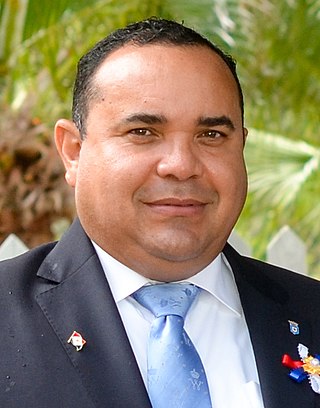
Edison Enrique Rijna is a Dutch politician who was Lieutenant Governor of Bonaire from 2014 to 2023. He previously served as the acting Island governor from 1 March 2014 to 22 August 2014. As a child he attended Prinses Beatrix School and SGB High School on Bonaire.
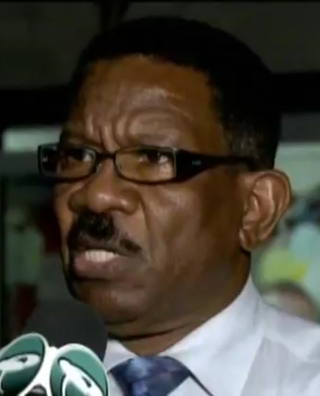
Amerigo Constantino Maria Thodé was a Curaçaoan politician of the Movement for the Future of Curaçao (MFK). He served as President of the Parliament of Curaçao between November and December 2012 and once again from March to May 2017.
Evelina Betancourt-Anthony is an Aruban-born Bonairean health administrator and politician. From 1 December 2015 she has served as the Deputy Lieutenant Governor of the island and in the absence of the Island Governor fills the duties of that office.
Guillfred Francis Besaril is an Aruban politician of the People's Electoral Movement. He was Minister Plenipotentiary of Aruba between 20 November 2017 and 10 June 2022. He previously served in the Estates of Aruba between 2013 and November 2017, the last month as president.

Diana Melinda Lebacs was a Curaçaoan educator, actress, and author, most known for her children's literature. She wrote in both Papiamento and Dutch. In 1976 she received the Zilveren Griffel award, one of the Netherlands' highest honors for youth literature, for her book Nancho van Bonaire. In 2003 she earned the inaugural Prins Bernhard Cultuurfonds Caribisch Gebied for her book Caimin's geheim and in 2007 she was honored as a Knight in the Order of Orange-Nassau.

The first cases of the COVID-19 pandemic of coronavirus disease 2019 in North America were reported in the United States on 23 January 2020. Cases were reported in all North American countries after Saint Kitts and Nevis confirmed a case on 25 March, and in all North American territories after Bonaire confirmed a case on 16 April.
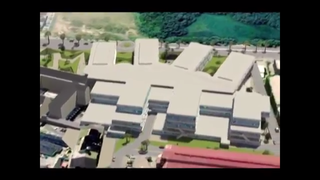
The COVID-19 pandemic in Curaçao was a part of the ongoing global viral pandemic of coronavirus disease 2019 (COVID-19), which was documented for the first time in Curaçao on 13 March 2020. The case was a 68-year-old man who was on vacation from the Netherlands. By 9 July 2020, all cases resolved. On 15 July, a new case was discovered, and on 6 August all cases resolved again briefly until 10 August.
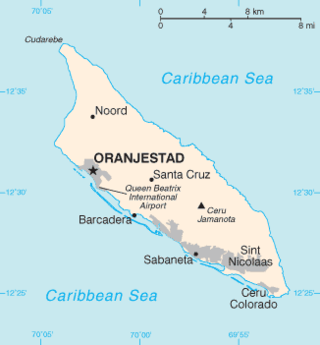
The COVID-19 pandemic in Aruba was a part of the ongoing global viral pandemic of coronavirus disease 2019 (COVID-19), which was documented for the first time in Aruba on 13 March 2020. As of 29 May, all cases recovered. On 29 June, two new cases were discovered.

The COVID-19 pandemic in Sint Maarten, also known as the coronavirus disease 2019 pandemic in Sint Maarten, was a part of the ongoing viral pandemic of coronavirus disease 2019 (COVID-19), which was confirmed to have reached the Dutch Caribbean island of Sint Maarten on 17 March 2020. By 15 June, all cases recovered. On 1 July, a new case had been discovered, which resolved on 3 July On 15 July, a 79th case was discovered.

The COVID-19 pandemic in Sint Eustatius is part of the ongoing global viral pandemic of coronavirus disease 2019 (COVID-19), which was confirmed to have reached the Dutch Caribbean island of Sint Eustatius on 31 March 2020. On 5 May all cases recovered. The island's first COVID-19 death was recorded on 19 January 2022. The patient died at the St. Maarten Medical Center (SMCC) where they had been transported for treatment according to the press release of the St. Eustatius government.
The COVID-19 pandemic in Saba is part of the ongoing global viral pandemic of coronavirus disease 2019 (COVID-19), which was confirmed to have reached the Dutch Caribbean island of Saba on April 12, 2020. At the beginning of the pandemic, the island had a population of just over 1,900 people. As of 12 May, all cases were reported to have recovered. On 1 August, two new cases were imported which resolved on 9 September.


